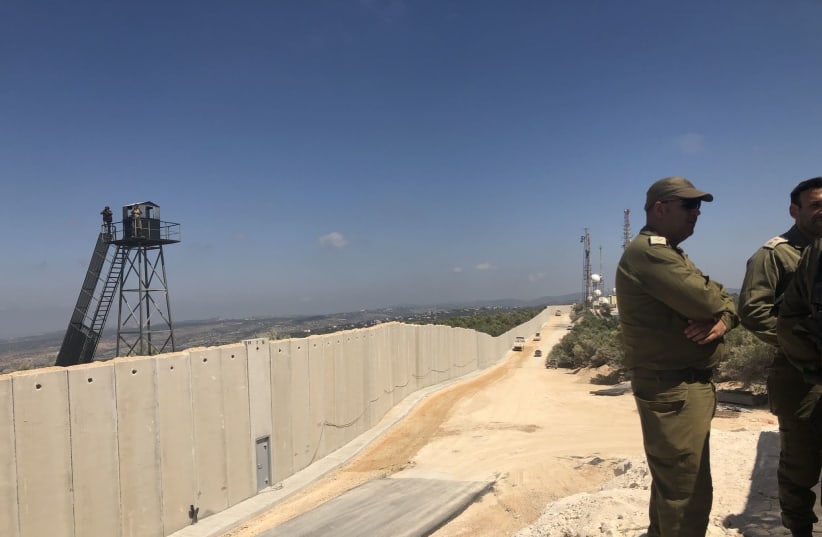The IDF repaired two of three separate locations where damage was done to the border fence between Israel and Lebanon on Friday night.A number of suspicious objects were found in the area of the third spot, leading the military to close the area.According to a report from the Hezbollah-affiliated al-Manar, there were at least three plastic bags found in the third location and troops had fired 15 shots towards one bag that had been found next to the hole in the fence.Video uploaded on pro-Hezbollah Twitter accounts showed several videos from the scene, including troops operating a drone and a bomb disposal robot carrying a blue plastic bag. A photo of Qassem Soleimani, Abu Mahdi al-Muhandis and Imad Mughniyeh with the word “Revenge” in Arabic and Persian was also found placed on the fence where the hole was cut.
תיעוד רכב החיזבאללה שהותקף בפאתי גבול סוריה-לבנון מלמד על כך שהרכב הוביל כנראה צוות של "כוח רדואן" שחזר ממשימת עומק או ממשימת ליווי של בכיר בחיזבאללה / כוח קודס https://t.co/2PfFIjuJnV
— אינטלי טיימס - בלוג המודיעין של ישראל (@IntelliTimes) April 18, 2020
